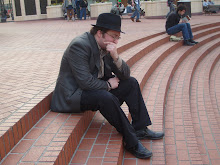During their discussion about the book The Death and Life of American Journalism, Robert McChesney and John Nichols report on the rapid decline of journalism in 21st Century America. To them, this decline is an increasingly important crisis for American democracy. Without credible, informative journalism, our nation will become corrupted by biased information from governments and large organizations.
This collapse of journalism in media has been coming for some time now and is the result of multiple causes. The most commonly discussed reasons are the advent of the internet and the current economy. However, McChesney and Nichols claim that this decline has been coming for much longer, and these two situations have only quickened the collapse, not caused it. To McChesney and Nichols, old media and journalism have been more threated by corporate conglomerates domination and decreasing quality of media, specifically journalism.
Since the middle of the 19th Century, the press and journalism in America has grown to become dependent upon advertising for revenue and developed a commercial model. This metamorphosis gradually forced the press to become more business oriented and evolve into the mass media of the 20th Century. During the last century, media monopolies and conglomerates grew by swallowing up independently owned papers and broadcasting stations. They then forced competitors out of business. In doing so, these companies began to abandon the communities their media served in order to reduce costs and increase profits for shareholders by reducing staff and using on more one-size-fits-all material.
In McChesney's views, this collapse of journalism is detrimental to our society. He views media, specifically its journalistic duties, almost as a fourth branch of government. It supplies a source of checks and balances to our elected officials that should be independent of the political system. He believes the press was practically a planned branch of government because the United States history, from the founding of the nation to about the Civil War, is filled with actions by the government to support a free press both legally and financially.
Without a doubt, I agree with almost all of McChesney and Nichols opinions regarding the fall of journalism. For some time, I have been convinced of the devastating effects the Telecommunication Act of 1996 has had on our society. In my opinion, this act is one of the most damaging pieces of legislation in the history of this republic. It allowed companies such as Clear Channel to acquire countless stations across the country. In doing so, the integrity of our media was damaged and unimaginable harm was done to local communities. Organizations would reduce staff and operate stations in clusters. As opposed to having seven radio stations with seven staffs, there would be seven stations with one staff. Thus, less jobs were created and less creativity was demonstrated. More and more companies would try to apply one approach to every community. What works in New York City does not necessarily work in Nameless, TN.
Hearing McChesney and Nichols talk has only reaffirmed my beliefs. Although my opinions have been formulated based on research of radio mergers, their critiques of newspapers echoes my opinions regarding radio station consolidations. All three of us seem to agree that media conglomerates are bad for local communities across the United States.
In order to rectify this crisis, McChesney and Nichols strongly advocate for government intervention. They believe the government should subsidize local media outlets by creating community oriented organizations and help young journalist gain experience. In doing so, they believe the press will get back to its true calling of supporting communities and aiding our democracy.
To judge the success of some of these changes, we would need to consider several factors. First of all, one would want to examine data regarding the number of newspapers, broadcasting stations, and journalism jobs available after the legislation. Do more communities have more than one print publication? Competing radio or television stations? Additionally, one would want to examine if people are able to make a living being a professional journalist. Are there more jobs for journalists? Are they paid adequately? This information would help to determine some of the success of the proposed changes. Of course, this evaluation would only examine of part of the puzzle.
In addition, we would need to see if the increased help for media actually aides our communities. Would the increased journalism increase the civics of the individuals in the communities? This information could be judged by gathering voting data and more importantly community involvement. Many people believe that Americans are increasingly becoming disconnected from those that live around them. If government support of increasing community media showed that individuals were more involved in their local communities by being better informed, then these people may be considered better citizens, and thus, McChesney and Nichols ideas could be considered successful.
